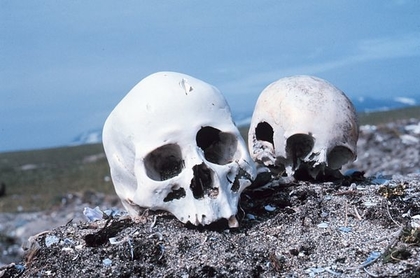
Crime scene cleanup
Crime scene cleanup is a term applied to forensic cleanup of blood, bodily fluids, and other potentially infectious materials (OPIM). It is also referred to as biohazard remediation, and forensic cleanup, because crime scenes are only a portion of the situations in which biohazard cleaning is needed. Incidents which may require this type of cleanup include accidents, suicide (or attempted suicide), homicides, and decomposition after unattended death, as well as mass trauma, industrial accidents, infectious disease contamination, animal biohazard contamination (e.g. feces or blood) or regulated waste transport, treatment, and disposal.
Дивится все
0
0

Forensic linguistics
Forensic linguistics, legal linguistics, or language and the law, is the application of linguistic knowledge, methods and insights to the forensic context of law, language, crime investigation, trial, and judicial procedure. It is a branch of applied linguistics. There are principally three areas of application for linguists working in forensic contexts: * understanding language of the written law, * understanding language use in forensic and judicial processes, and * the provision of linguistic evidence. The discipline of forensic linguistics is not homogeneous; it involves a range of experts and researchers in different areas of the field.
Дивится все
0
0

Forensic anthropology
Forensic anthropology is the application of the anatomical science of anthropology and its various subfields, including forensic archaeology and forensic taphonomy, in a legal setting. A forensic anthropologist can assist in the identification of deceased individuals whose remains are decomposed, burned, mutilated or otherwise unrecognizable, as might happen in a plane crash. Forensic anthropologists are also instrumental in the investigation and documentation of genocide and mass graves. Along with forensic pathologists, forensic dentists, and homicide investigators, forensic anthropologists commonly testify in court as expert witnesses. Using physical markers present on a skeleton, a forensic anthropologist can potentially determine a person's age, sex, stature, and race. This is useful in identifying living individuals for legal purposes such as illegal immigrants. This is extremely important in legal cases where the court needs to decide if they will judge an individual as an adult or a minor. In addition to identifying physical characteristics of the individual, forensic anthropologists can use skeletal abnormalities to potentially determine cause of death, past trauma such as broken bones or medical procedures, as well as diseases such as bone cancer. The methods used to identify a person from a skeleton relies on the past contributions of various anthropologists and the study of human skeletal differences. Through the collection of thousands of specimens and the analysis of differences within a population, estimations can be made based on physical characteristics. Through these, a set of remains can potentially be identified. The field of forensic anthropology grew during the twentieth century into a fully recognized forensic specialty involving trained anthropologists as well as numerous research institutions gathering data on decomposition and the effects it can have on the skeleton.
Дивится все
0
0

Forensic science
Forensic science, also known as criminalistics, is the application of science to criminal and civil laws, mainly—on the criminal side—during criminal investigation, as governed by the legal standards of admissible evidence and criminal procedure. Forensic scientists collect, preserve, and analyze scientific evidence during the course of an investigation. While some forensic scientists travel to the scene of the crime to collect the evidence themselves, others occupy a laboratory role, performing analysis on objects brought to them by other individuals. In addition to their laboratory role, forensic scientists testify as expert witnesses in both criminal and civil cases and can work for either the prosecution or the defense. While any field could technically be forensic, certain sections have developed over time to encompass the majority of forensically related cases. Forensic science is a combination of two different Latin words: forensis and science. The former, forensic, relates to a discussion or examination performed in public. Because trials in the ancient world were typically held in public, it carries a strong judicial connotation. The second is science, which is derived from the Latin word for 'knowledge' and is today closely tied to the scientific method, a systematic way of acquiring knowledge. Taken together forensic science means the use of the scientific methods and processes for crime solving.
Дивится все
0
0




Коментарі